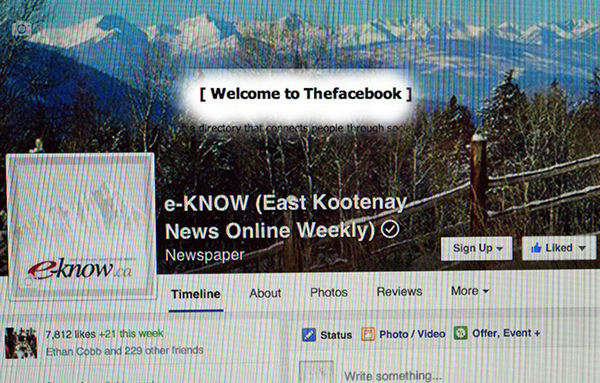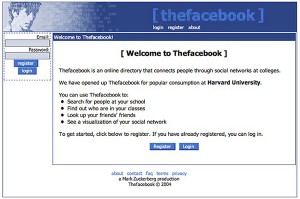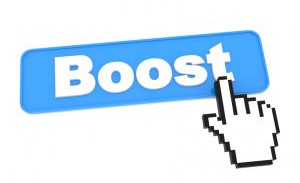Home »

Facebook marketing: Quality over quantity
Marketing on Facebook requires quality posts and Likes
By Chris Botterill
Facebook has grown from a way to keep in touch with friends to a dynamic way for a company, organization or event to create an online brand and reach more fans more effectively.
 But there are a few major differences between a personal Facebook profile and a page that users need to be aware of to get the most out of their marketing efforts.
But there are a few major differences between a personal Facebook profile and a page that users need to be aware of to get the most out of their marketing efforts.
Creating a Facebook page is very different than creating a personal profile. Pages are designed to be the voice of the company, organization or event that created it. While not understanding the basics of Facebook etiquette on a personal page can be embarrassing, not understanding how to properly use a page can be costly to a bank account and reputation. However, if done correctly a page can be a powerful way to convey key messaging.
Evolution of Facebook Marketing
 In the early days of Facebook, a page’s objective was to gain more likes, a bigger fan base and then to post as frequently as possible. Facebook was designed to allow a page to reach each user through every update. The more content was posted, the most often fans saw the page.
In the early days of Facebook, a page’s objective was to gain more likes, a bigger fan base and then to post as frequently as possible. Facebook was designed to allow a page to reach each user through every update. The more content was posted, the most often fans saw the page.
Now that has changed. Due to a high number of competing pages, users started to complain that their news feeds were becoming cluttered with posts they didn’t care about. They didn’t want to see 20 posts a day from the barbershop down the street or from an event they planned on attending that weekend.
So Facebook redesigned the way a page works.
That change significantly reduced the amount of posts seen by users. Now, only 16 percent of posts are actually seen by all of the people who like a page. While this quieted the complaints from fans, it created a big problem for pages.
A New Way to Reach Fans
To solve the problem, Facebook began allowing pages to pay to boost their messages and ensure greater visibility with fans. By paying per impression, pages can now even reach Facebook users outside their fan base and target people based on gender, age, location and interests—thanks to Facebook’s complex algorithms for intimately knowing its users.
 So, if a page pays to boost its content but is delivering a message that people don’t care about, its money will be wasted. Thus, Facebook started a shift of providing quality content less frequently that is more engaging and delivers a more targeted message.
So, if a page pays to boost its content but is delivering a message that people don’t care about, its money will be wasted. Thus, Facebook started a shift of providing quality content less frequently that is more engaging and delivers a more targeted message.
But no message is engaging if it’s delivered to the wrong audience. Pages must aim to be liked by people who are genuinely interested in the page’s cause. Investing a lot of time and energy into getting likes from Facebook users who don’t actually care about the message is futile. If people aren’t interested, the money a page spends per impression is wasted, because it will be charged for the views of people who don’t care about the message.
By understanding how Facebook handles pages, you can create powerful and extremely effective messages seen by a very specific audience. On the other hand, failing to understand how a Facebook page works can result in wasted effort and money with messages that deliver the wrong information to the wrong audience.
This is the third article in a four-part series about using Facebook to your advantage. Click here to view the first two articles – how Facebook gets to know you and Facebook etiquette.
 – Chris Botterill/Genex Marketing, Cranbrook
– Chris Botterill is a tech-savvy, marketing expert who loves to talk websites, ad campaigns and anything else that helps you and your business grow. Since starting Genex Marketing in 2008, Chris has grown his business year by year, to become a successful entrepreneur. He started in virtual web design and is now offering full Agency Services to businesses local and abroad. Agency Service includes all types of marketing from web, social media, print, radio and creating business collateral. Chris and Genex Marketing know how to help you adjust to the radical change in the marketplace from print and word of mouth to digital, social and virtual.
– Chris Botterill/Genex Marketing, Cranbrook
– Chris Botterill is a tech-savvy, marketing expert who loves to talk websites, ad campaigns and anything else that helps you and your business grow. Since starting Genex Marketing in 2008, Chris has grown his business year by year, to become a successful entrepreneur. He started in virtual web design and is now offering full Agency Services to businesses local and abroad. Agency Service includes all types of marketing from web, social media, print, radio and creating business collateral. Chris and Genex Marketing know how to help you adjust to the radical change in the marketplace from print and word of mouth to digital, social and virtual.







